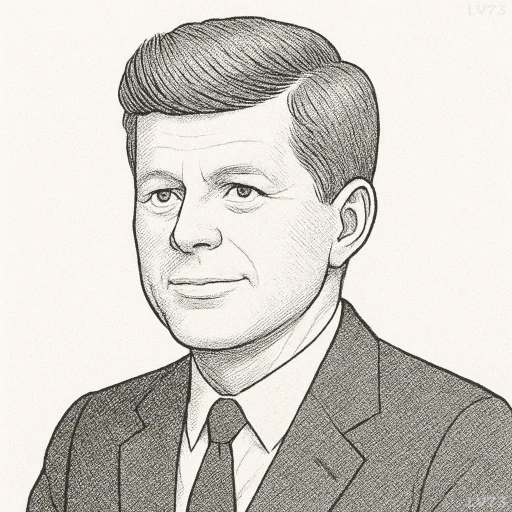“I don’t think the intelligence reports are all that hot. Some days I get more out of the New York Times.”

- May 29, 1917 – November 22, 1963
- American
- Politician
table of contents
Quote
“I don’t think the intelligence reports are all that hot. Some days I get more out of the New York Times.”
Explanation
This candid remark by John F. Kennedy is an example of his characteristic humor and sharp critique of the information he was receiving during his presidency. Kennedy’s comment about the intelligence reports suggests a level of frustration or disappointment with the accuracy, timeliness, or usefulness of the intelligence briefings he was receiving from his advisers. At the time, the U.S. government was engaged in a tense Cold War environment, and intelligence was vital for national security, but Kennedy’s statement hints at the shortcomings or gaps in the system that were sometimes apparent. His reference to the New York Times underscores his belief that the public media could, on certain occasions, be more informative or insightful than classified intelligence.
Kennedy’s words are also indicative of the challenges inherent in managing a complex information system, especially when international relations, military actions, and covert operations were involved. In this case, he was likely alluding to the frustrations of sifting through reports that were sometimes incomplete or misleading, as well as the difficulty of discerning the truth amidst competing narratives and analyses. This kind of statement, delivered with his usual wit, could also be seen as a call for more effective, reliable intelligence, as well as a reminder of the importance of critically assessing the information leaders are provided.
In the context of modern times, the quote can be understood as a reflection of the ongoing issue of information reliability. In an era dominated by 24-hour news cycles and social media, where information is often fragmented and sometimes contradictory, the challenge of discerning truth from misinformation remains a crucial issue for public leaders. Kennedy’s comment serves as a reminder that no matter how sophisticated the intelligence apparatus, the public sphere—through journalism and independent reporting—still plays a vital role in shaping public understanding and holding power to account. The issue of reliable information and its accessibility to both leaders and citizens continues to be a central theme in contemporary governance.
Would you like to share your impressions or related stories about this quote in the comments section?




